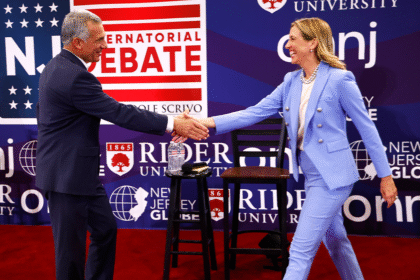Ajeet Bharti Questioned by Noida Police Following Controversial Remarks on Chief Justice Incident
In a significant development in Uttar Pradesh, content creator Ajeet Bharti was questioned by police in Noida regarding his provocative comments on social media about an incident involving Chief Justice of India (CJI) BR Gavai. This incident, which occurred on Monday, involved a lawyer attempting to throw a shoe at the Chief Justice during a court session, an act that has sparked widespread outrage and discussions about judicial decorum and public discourse.
Background of the Incident
The shoe-throwing incident has drawn attention not only for its unusual nature but also for the implications it carries regarding the respect for judicial authority in India. The lawyer, identified as Rakesh Kishore, reportedly expressed his grievances against the judiciary, which he felt had failed to uphold justice. Such acts of protest, while rare, are not entirely unprecedented in India, where public frustration with the legal system has occasionally manifested in dramatic forms.
Who is Ajeet Bharti?
Ajeet Bharti, a prominent figure in the realm of independent journalism, has made a name for himself through his critical commentary on various social and political issues. Born in Bihar, he has transitioned from working with mainstream media outlets to establishing his own platform, AB4K Media. His work often includes satirical takes on current events, and he is known for his fearless approach to discussing sensitive topics, including the judiciary and government.
Bharti’s content often features a blend of analysis and humor, which has garnered him a substantial following on social media. With nearly 500,000 followers on X (formerly Twitter) and over 700,000 subscribers on YouTube, he has become a significant voice in alternative media. His website describes him as someone who challenges established narratives, aiming to provide a platform free from the biases he perceives in mainstream journalism.
The Police Inquiry
On Tuesday, police officials confirmed that Bharti was summoned for questioning related to his social media posts about the CJI incident. Initially taken to the Sector 58 police station, he was later moved to the DCP office for further inquiry. Despite rumors circulating about his arrest, Noida police spokesperson Sumit Shukla clarified that Bharti was not in custody but was being questioned regarding his remarks.
Following the questioning, Bharti took to social media to reassure his followers that he was “fine” and had not been arrested. His ability to maintain a strong online presence amid controversy reflects the complex relationship between social media influencers and traditional law enforcement.
Controversial Remarks and Public Reaction
Bharti’s comments regarding the CJI have ignited a firestorm of debate. In a video posted shortly after the shoe-throwing incident, he made disparaging remarks about CJI Gavai, labeling him as a “lousy, undeserving judge.” He further suggested that the incident was a fitting consequence for the Chief Justice, stating, “I wanted to make a video about ‘shoes and the Chief Justice’ after seeing his shoes in a photo recently, but could not shoot that one for some reason. Well, it seems ‘shoes’ were sticking to him ever since!”
These remarks have not only drawn ire from legal professionals but have also prompted activist Suraj Kumar Bauddh to write to Attorney General R Venkataramani, seeking consent to initiate criminal contempt proceedings against Bharti. Bauddh’s letter emphasized that Bharti’s statements could incite violence against the judiciary, highlighting the potential dangers of inflammatory rhetoric in a politically charged environment.
The Broader Implications
The incident raises critical questions about the boundaries of free speech in India, particularly concerning public figures and their influence on societal attitudes toward the judiciary. Bharti’s case exemplifies the tension between individual expression and the responsibilities that come with a significant platform. As India grapples with issues of justice and accountability, the role of social media influencers like Bharti becomes increasingly complex.
Historically, India has seen various forms of protest against judicial decisions, but the advent of social media has transformed how these sentiments are expressed and amplified. The rapid dissemination of information can lead to heightened emotions and, in some cases, violent actions, as seen in the recent shoe-throwing incident.
Conclusion
Ajeet Bharti’s questioning by Noida police underscores the delicate balance between freedom of expression and the potential for incitement in a democratic society. As the nation reflects on the implications of his remarks, it is essential to consider the broader context of public discourse surrounding the judiciary. The incident serves as a reminder of the responsibilities that come with influence and the need for a nuanced understanding of the power of words in shaping public sentiment. As the legal proceedings unfold, the intersection of media, law, and public opinion will continue to be a focal point in India’s ongoing dialogue about justice and accountability.










